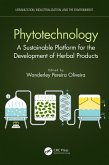n recent decades, the way we eat has undergone a profound transformation. The rise of processed foods, once a symbol of convenience and innovation, has dramatically reshaped global diets and impacted the health of society in ways we are only beginning to fully understand. This book explores the deep connections between processed foods and public health, offering a compelling examination of how the foods we consume affect not only our individual well-being but also the broader health of our communities.As industrialization and globalization have made processed foods more accessible, they have also introduced new challenges. These foods, often loaded with added sugars, unhealthy fats, and artificial additives, have contributed to the rise of chronic diseases such as obesity, diabetes, and heart disease. The effects of these dietary patterns are particularly pronounced in vulnerable populations, where poor access to fresh, whole foods and limited nutritional education exacerbate health inequalities. This book sheds light on these pressing issues, connecting the dots between convenience-driven food choices and their far-reaching consequences for public health.The relationship between processed foods and health is complex and multifaceted. While processed foods provide an immediate solution to the demands of busy modern lives-offering quick, affordable, and shelf-stable options-the long-term impact on our health and the environment has been profound. The growing body of research on the adverse effects of ultra-processed foods, particularly their role in chronic disease and environmental degradation, underscores the urgency of reevaluating our food systems. At the heart of this evaluation is the recognition that the food industry, governments, and consumers all play pivotal roles in shaping the future of food.Through the lens of science, policy, and personal responsibility, this book offers not only a critique of the modern food landscape but also a hopeful vision for the future. It presents a call to action for all of us to reassess our food choices, support healthier, sustainable practices, and advocate for policies that make nutritious foods accessible to everyone. By reimagining our food systems-where convenience and health can coexist-we can create a future where the health of our bodies, our communities, and our planet are aligned.As you read this book, you will be invited to consider your role in the food system and the impact your choices have, both personally and societally. We have the power to shape the future of food. With awareness, education, and collective action, we can move toward a world where the benefits of processed foods are balanced with the nourishment of whole, unprocessed options-creating a healthier, more sustainable world for generations to come.
Bitte wählen Sie Ihr Anliegen aus.
Rechnungen
Retourenschein anfordern
Bestellstatus
Storno








